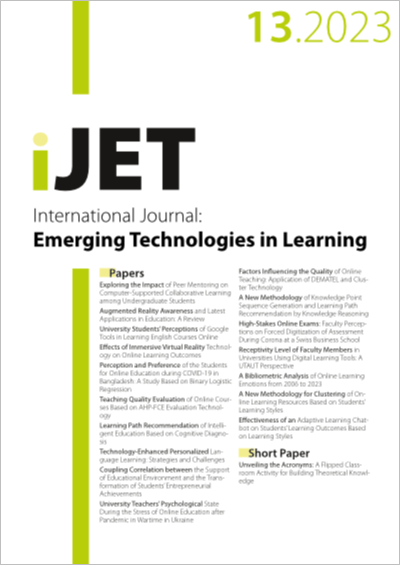Exploring the Impact of Peer Mentoring on Computer-Supported Collaborative Learning among Undergraduate Students
DOI:
https://doi.org/10.3991/ijet.v18i13.39819Keywords:
peer mentoring, CSCL, undergraduate students, SEMAbstract
Research indicates that peer mentoring supports students learning and emotional stability. However, its usability and impact in Computer-Supported collaborative (CSCL) learning activities that enhance students’ learning in and outside the classroom require contextual exploration. Hence, this study examined the usability and impacts of peer mentoring in CSCL among undergraduate students using a mixed-methods research approach. Data collection was conducted by administering a questionnaire with both qualitative and quantitative elements. Data analyses started with thematic coding of the nuanced texts collected through open-ended questions, and structural equation modelling (SEM) was used to analyze the quantitative data. Findings show that students have a different understanding of collaborative learning, but a common acknowledgment is that peer mentoring is beneficial in CSCL. Importantly, student views are impacted by gender, college affiliations, and CSCL experience. Drawing on the findings, we conclude that peer mentoring’s acceptability in CSCL is feasible and can affect students’ learning positively. However, it should be planned effectively and deployed based on contextual data showing students’ preference for CSCL and their peculiar need for peer mentoring.
Downloads
Published
How to Cite
Issue
Section
License
Copyright (c) 2023 Semiyu Aderibigbe, Emran Alotaibi, Khadeegha Alzouebi

This work is licensed under a Creative Commons Attribution 4.0 International License.


